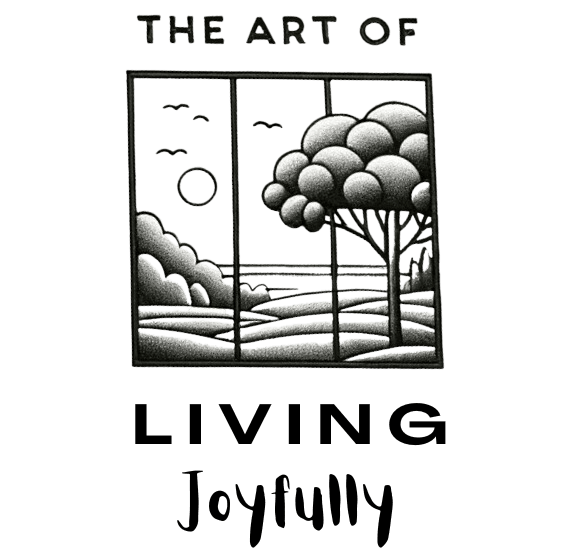Coping With Stress in Your 50s: Why It Matters and How to Manage It
As we hit our fifties and beyond, many of us face additional obstacles that might add to our stress levels. While mild stress can help drive and focus us, prolonged and chronic stress can be detrimental. According to the American Psychological Association, more than half of all adults are stressed out about work, money, or health/wellness difficulties. All of that anxiety can contribute to issues like high blood pressure, sleeplessness, memory problems, and decreased immunity if not managed effectively. We may, however, decrease the effects of stress after 50 by knowing the risks and core causes, as well as implementing lifestyle changes and self-care techniques.
How does unregulated stress influence us at this period of development? According to the Global Council on Brain Health, chronic stress accelerates aging, contributes to cognitive decline and dementia risk, and exacerbates multiple health conditions. Stress, according to researchers, literally erodes telomeres, the protective caps on our DNA strands. Telomere shortening causes cell death and biological aging over time, raising the risk of a variety of age-related disorders.
Managing tension and anxiety in your fifties necessitates the development of new habits and mindsets. The Mayo Clinic recommends realistic goal-setting, self-care prioritization, expressing feelings creatively, cultivating optimism, and building emotional resilience. Combining these mental health measures with good sleep habits, frequent exercise, and a nutrient-rich diet is a potent cure to the stresses of modern middle age. Surrounding oneself with community support and establishing appropriate interpersonal boundaries can also be quite beneficial.
How Stress Affects Health After the Age of 50
Age-related health problems have become more widespread since our forties. Because of the natural aging process, as well as lifestyle factors, we are at a higher risk for illnesses such as heart disease, diabetes, and cancer. Stress increases the risk of disease by increasing cortisol, blood pressure, and inflammatory markers.
Researchers from the American Institute of Stress explain that stress hormones like cortisol trigger fat storage, promote insulin resistance, raise cholesterol levels, and encourage plaque buildup in the arteries. Obesity, metabolic problems, and cardiovascular disease are the result. According to research, perceived stress is related to the occurrence of chronic health problems. Those who self-report higher levels of worry are more likely to acquire heart disease, diabetes, and other comorbidities.
Chronic stress has also been shown to hasten biological aging. All of those anxious, angry, and distressed sensations destroy telomeres, which are protective caps on DNA strands. The journal Psychoneuroendocrinology discovered that shortened telomeres raise the risk of dementia, heart disease, osteoporosis, diabetes, some malignancies, and premature death. Shorter telomeres are associated with cellular aging. Stress management that is effective protects telomere length and delays the onset of age-related illnesses.
High cortisol and inflammation’s mind-body effects help to explain the linkages between stress, hastened aging, and disease. After controlling for other risk factors, experts increasingly acknowledge chronic stress as its own health risk factor, independently predicting the onset of heart attacks, strokes, and other comorbidities.
The long-term effects of chronic stress, paired with natural immunological senescence in middle age, are alarming. Addressing anxiety and lifestyle problems earlier in life protects long-term health. However, even making changes in our fifties to manage stress can reduce illness risk and extend our life.
The Mind-Body Connection
Stress has a negative impact on both the mind and the body. When we are continually nervous or overwhelmed, we are more likely to develop mental health problems such as depression and anxiety disorders. The American Journal of Geriatric Psychiatry published a study that linked perceived stress levels to the emergence of clinical depression and anxiety in persons aged 50 to 70. Over time, stress erodes resilience and coping capacities.
According to studies, chronic stress and increased cortisol levels also contribute to cognitive decline, memory issues, and dementia. Cortisol harms the hippocampus, which controls learning, memory, and emotions. Extreme distress or PTSD symptoms accelerate hippocampus shrinking, increasing the likelihood of neurocognitive problems.
Emotional turbulence from decades of accumulated loss, regret, grief, and fear of aging can feed anxiety by middle age. Coping with role changes such as empty nesting, professional moves, caregiving responsibilities, and retirement at the same time can exacerbate distress. When life obstacles such as illnesses, disabilities, or financial restraints are factored in, it is no surprise that 25-33% of persons in their fifties suffer from clinical anxiety.
Seeking social support, seeking mental health care, and implementing stress coping strategies all contribute to increased resilience. Researchers underline that proactively addressing psychological discomfort, rather than masking symptoms with drugs, provides the best chances for long-term cognition and emotional equilibrium. Combining stress management with aerobic exercise, memory training, and a Mediterranean-style diet rich in omega-3 fatty acids results in long-term mental health advantages.
Determine Your Stress Triggers
We all have various stress triggers and respond differently. Reflecting on your specific scenario can assist you in identifying your main sources of stress. Begin by keeping a basic notebook or app to document your mood, thoughts, and stress levels throughout the day. Take note of any events, interactions, or activities that make you feel tense or agitated. You will see patterns related to your common triggers over time.
Work duties can become onerous for many people entering their fifties. People become exhausted from the emotional work and energy expended in managing team members, appeasing demanding supervisors or clients, and negotiating office politics. Try to keep work-related tasks and activities outside of working hours to a minimum.
In middle age, health difficulties frequently become a main stress trigger. Receiving a frightening diagnosis, such as heart disease or arthritis, is extremely upsetting. Anxiety and despair are fueled by symptoms such as persistent pain, exhaustion, or decreased mobility. Be gentle with yourself while you face health issues, and seek integrative therapy to alleviate uncomfortable symptoms.
According to Mental Health America, finances are also a common source of concern at this point. Supporting elderly parents or unemployed adult children places financial strain on some. Outliving retirement savings becomes a growing concern, especially as inflation rises. Create realistic budgets and financial strategies that provide stability without being excessively frugal.
Understanding your primary stressors enables you to deal with them more effectively. Turn to trusted friends, join a support group, or seek professional help. We all need support in dealing with life’s unexpected twists and turns.
Adopt Proactive Coping Techniques
Managing tension and anxiety in your fifties necessitates the development of new habits and mindsets. The American Psychological Association recommends setting realistic goals, such as not taking on too many duties and knowing when to say no. Make relaxing me-time a daily priority, even if it is just 15 minutes of deep breathing or a brief walk. Make time for self-care methods that assist your mental health, such as meditation, yoga, massage, or art therapy.
Expressing feelings artistically through journaling, music, or artwork protects emotions from being bottled up. When feasible, approach hardship with self-compassion, patience, and optimism. According to psychologists, having a “good enough” attitude decreases self-judgment. Staying flexible is important because perfectionism and inflexible thinking promote anxiety.
It also greatly aids in the development of emotional resilience through physical self-care. Make obtaining 7-9 hours of sleep per night a priority. Consume an anti-inflammatory diet rich in vegetables, fruits, and whole grains. Incorporate both cardio and strength training into your everyday routine; aim for 30 minutes of cardio and strength training five days a week. Consider magnesium, omega-3s, or adaptogen herbs as cortisol-lowering supplements.
According to Johns Hopkins Medicine, stress-relieving therapies such as mindfulness meditation, yoga, massage, and acupuncture can also help. Relaxation techniques have been demonstrated to lower cortisol levels, lower blood pressure, and protect against age-related disease. They help boost overall sensations of happiness and tranquility.
Get Involved in Your Community
Being surrounded by helpful community members acts as a buffer against life’s pressures. Social isolation and loneliness have been linked to increased risks of anxiety, depression, dementia, and premature death. Making meaningful interpersonal connections is essential for maintaining mental and cognitive wellness.
Participate in spiritual groups or volunteer work if you find those activities meaningful. Adults who attend religious services live longer and have a more positive attitude on aging, according to studies. Giving your time to causes you care about gives you a sense of purpose, which enhances your self-esteem.
Include informal social outings in your agenda as well. Attend dance classes, meet a friend for coffee, and say yes to invites. A sense of belonging is promoted by deepening friendships through intimate talks and shared activities. Even brief interactions with neighbors, cashiers, or other members of the community have cumulative mood-boosting effects.
Also, keep in touch with family and friends by phone calls, texts, or video chats on a regular basis. Offer emotional support to loved ones who are experiencing challenges, and explain what is going on in your own life. During times of stress or loss, feel free to seek advice or comfort from your close circle. Relationships provide protection, but they demand ongoing investment.
Establish Healthy Boundaries
It is important that you become comfortable with the idea of creating limits about your energy, time, and emotional availability as you transition into your later decades. Taking on an excessive amount of responsibilities and giving in to the expectations of everyone can rapidly give rise to feelings of worry and anger.
You should get in the habit of politely and directly declining people’s requests when you are unable to fulfill them in a reasonable manner. Refuse to apologize or feel guilty about your decision. Whenever someone pushes your boundaries, you should learn to recognize and stop any emotional manipulation or subtle aggression that they may give you.
Additionally, before committing to large caring responsibilities for members of your family, exercise extreme discretion. Take into account your current state of health, the duties you already have, and the limits you face financially initially. Refusing to provide care does not make you a bad person; nonetheless, you should consider the likelihood that taking on the position of caregiver could result in additional stresses on your physical and emotional health.
It is also important to establish professional limits. It is important to keep a clear separation between your personal life and your professional life, therefore make sure to turn off work notifications after hours. For many people who have been feeling exhausted after decades of rigorous labor, the respite they seek can be found in either retiring completely or switching to part-time hours.
It is necessary to recognize both your demands and your limitations in order to establish appropriate boundaries. If, however, you are in your 50s or beyond and you continue to feel perpetually overwhelmed or obligated, you are heading down an unhealthy path. In order to have the freedom to enjoy this period of life, it is necessary to establish boundaries in order to obtain emotional security and self-trust.
Welcome to this period of your life.
In spite of the difficulties that it presents, your forties may be an extremely gratifying stage of your life. This decade is distinguished by reaching the pinnacle of career earnings and authority in a variety of disciplines, which enables much improved financial stability. When children reach adulthood and leave the house, new opportunities present themselves, bringing with them increased independence and disposable income.
People who are in their 50s today understand that reaching this age ushers in maturity, self-confidence, and liberation, despite the fact that some people view it as losing their youth. Self-care and the expression of your genuine self are two things that can help you flourish to the fullest extent possible. Make a commitment to behaviors and mentalities that will bring you contentment.
It is a wonderful moment to reignite the connection in the relationships that are most important to you. The establishment of frequent date nights, weekends away, and romantic vacations helps to strengthen relationships. Make the most of your increased free time by going on more trips and crossing off activities from your bucket list that you have been wanting to do. Consider resuming activities that you had previously put off, such as starting a new business, going back to school, or moving to a new location.
Later decades shed light on the most important aspects of the situation. Simplify the situation around such individuals and the things that they are passionate about. Become comfortable with the idea of saying “no” to anyone who is interfering with your joy and purpose. Maintain a schedule that allows you to create, study, go on adventures, and celebrate the beauty of life, in whatever way you choose to interpret it.
Maintain vigilance in order to reduce stress by employing healthy coping skills, well-defined limits, and community. But do not forget to enjoy the liberation, wisdom, and pleasures that come with maturation. Paying attention to your ever-changing requirements allows you to continue to thrive well into older decades.







